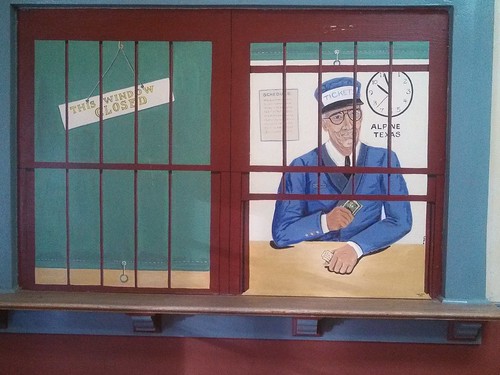 One year ago today, the world lost not only a physiotherapist but a true visionary as well: Robin McKenzie.
One year ago today, the world lost not only a physiotherapist but a true visionary as well: Robin McKenzie.
In retrospect, I consider myself very fortunate to have had the opportunity to meet Robin McKenzie and to watch him assess and treat patients live. It was an experience that I look back on fondly and that words fail to describe. I still laugh when I recollect his telling the tale of legendary patient Mr. Smith in such a matter-of-fact and unassuming way.
Today, I can attest that his vision and insights live on stronger than ever. Here are some personal reflections on McKenzie, MDT, and what we really stand to learn from his legacy.
 I'd originally just planned it as a quick trip to west Texas. It was going to be just a few days to get away, to breath, to simply find some peace and quiet in a what had become a rather emotionally challenging world over the past couple of months.
I'd originally just planned it as a quick trip to west Texas. It was going to be just a few days to get away, to breath, to simply find some peace and quiet in a what had become a rather emotionally challenging world over the past couple of months.
Little did I know it would become something far greater. Serendipity.
Please allow me to introduce what I am now calling Write Now! 2014. Here's the story - and the results from the adventure that it proved to be.
 Physical therapy is the future of health care. There. I said it - a pretty strong stance, indeed, given where we currently stand in the world.
Physical therapy is the future of health care. There. I said it - a pretty strong stance, indeed, given where we currently stand in the world.
The future of health care is going to be directly related to activity, lifestyle, movement, exercise, and ultimately, function. And who better to lead the fray?
There is just one problem with my premise. Physical therapists need to choose to believe it - and to have the guts to take ownership of it while acting in accordance with it.
 Evidence-based. Evidence-informed. Best evidence. These are just a few of the catch phrases that litter the medical community these days. For every phrase, there is probably at least one analogy to best describe it. Perhaps the one that is most bothersome and annoying is that which is used for "evidence-based practice": the three-legged stool.
Evidence-based. Evidence-informed. Best evidence. These are just a few of the catch phrases that litter the medical community these days. For every phrase, there is probably at least one analogy to best describe it. Perhaps the one that is most bothersome and annoying is that which is used for "evidence-based practice": the three-legged stool.
If you aren't familiar with it, the evidence-based practice stool stands on three legs. Each is considered to be equally important. The legs are best available research evidence, clinical expertise, and the patient's values, needs and preferences.
So how could I not support a model of evidence-based practice such as this? How could I become annoyed with such an analogy?
 May 1, 1994 is a day that will forever stand in infamy. If I close my eyes and pause for a moment, the memories come flooding back with great clarity. They still remain vivid yet at the same time sad and haunting.
May 1, 1994 is a day that will forever stand in infamy. If I close my eyes and pause for a moment, the memories come flooding back with great clarity. They still remain vivid yet at the same time sad and haunting.
May 1, 1994 is when the world lost Ayrton Senna at Imola.
Time, as we all know, passes us by quickly. It is hard to believe that two decades have passed. Today I share a few thoughts and reflections on the legend that is Senna.
 I have been a photographer for many years. It all started with an Instamatic, progressing to a 35 mm SLR, a point-and-shoot digital camera, and now to a digital SLR. I think I had my first camera when I was 9 or 10 years old. Having a camera in my hands is a natural feeling for me.
I have been a photographer for many years. It all started with an Instamatic, progressing to a 35 mm SLR, a point-and-shoot digital camera, and now to a digital SLR. I think I had my first camera when I was 9 or 10 years old. Having a camera in my hands is a natural feeling for me.
Photography was almost my chosen profession. It was that or physical therapy. Yes, a strange dichotomy and a very intriguing story to go along with it. I'll share that tale at another time, but suffice it to say we all know which pathway I took.
I appreciate the challenge in taking the best photo possible. It is all about being in the right place, at the right time. Part of it is the creative aspect of putting colors and tones and lines in an image artistically. But part of it is a technical process. You have to select the right lens for the task at hand.
 It is a call to action that has resonated with me for years. It is a call to action that I have used repeatedly, having even written a blog post of the same title last year.
It is a call to action that has resonated with me for years. It is a call to action that I have used repeatedly, having even written a blog post of the same title last year.
The Right To Choose.
It was a great day when physical therapists in Texas adopted this phrase as a rallying cry for consumers. Simple - and to the point. The next legislative session in Texas is in 2015, and consumer awareness can't begin a moment too soon.
In a country founded on free markets, you would expect consumer choice to be a primary element in health care. My question to you, the reader, is simple: does a patient have the freedom and the right to select their health care provider freely and of their own volition? The answer, in the vast majority of states across this great land, is a resounding "no".
 "Running Injuries: Etiology And Recovery- Based Treatment" (co-author Bridget Clark, PT) appears in the third edition and fourth editions of "Clinical Orthopaedic Rehabilitation: A Team Approach" by Charles Giangarra, MD and Robert C. Manske, PT.
"Running Injuries: Etiology And Recovery- Based Treatment" (co-author Bridget Clark, PT) appears in the third edition and fourth editions of "Clinical Orthopaedic Rehabilitation: A Team Approach" by Charles Giangarra, MD and Robert C. Manske, PT.
 Allan Besselink, PT, DPT, Ph.D., Dip.MDT has a unique voice in the world of sports, education, and health care. Read more about Allan here.
Allan Besselink, PT, DPT, Ph.D., Dip.MDT has a unique voice in the world of sports, education, and health care. Read more about Allan here.
 Top 5 finalist in three categories: "Best Overall Blog", "Best PT Blog" and "Best Advocacy Blog".
Top 5 finalist in three categories: "Best Overall Blog", "Best PT Blog" and "Best Advocacy Blog".